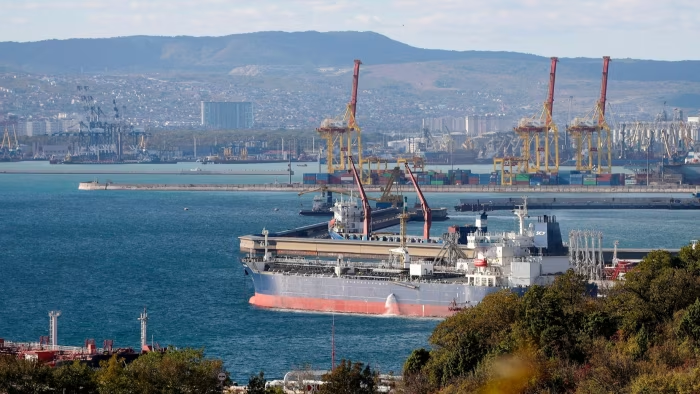Now Reading: US Urges G7 and EU to Impose Tariffs on China and India Over Russian Oil Purchases
-
01
US Urges G7 and EU to Impose Tariffs on China and India Over Russian Oil Purchases
US Urges G7 and EU to Impose Tariffs on China and India Over Russian Oil Purchases

In a significant diplomatic move, the United States has called on its G7 and European Union allies to impose substantial tariffs on imports from China and India. The U.S. argues that these countries’ continued purchases of Russian oil are funding Russia’s military operations in Ukraine. This proposal aims to increase economic pressure on Russia and encourage these nations to cease their oil transactions with Moscow.
Background and Rationale
The U.S. Treasury has emphasized that the ongoing purchases of Russian oil by China and India are providing critical revenue to Russia, thereby prolonging the conflict in Ukraine. U.S. Treasury Secretary Scott Bessent and Trade Representative Jamieson Greer have urged G7 finance ministers to adopt a unified approach, stating that only a coordinated effort can effectively cut off the financial resources fueling the war. The U.S. has already implemented a 25% tariff on Indian imports, doubling the total duties to 50%, in an effort to pressure India to halt its purchases of discounted Russian crude oil. However, similar measures have not been imposed on China, as the U.S. navigates a delicate trade truce with Beijing.
International Reactions and Considerations
European G7 members have expressed hesitation about imposing such severe penalties due to potential economic repercussions and the risk of retaliation from China. The European Union is also navigating sensitive trade negotiations with India. UK Prime Minister Keir Starmer plans to discuss targeted sanctions with U.S. President Donald Trump to avoid triggering a trade war. Meanwhile, Canada, holding the G7 presidency, is balancing these measures with efforts to restore relations with China and India.
Implications for India and China
For India, the proposed tariffs could strain its economic relations with the U.S., especially as both countries are exploring deeper trade partnerships. India’s Ministry of External Affairs has criticized the U.S. tariffs as unjustified, stating that India’s imports of Russian oil are necessary to ensure affordable energy for its citizens amid global supply disruptions. The Ministry pointed out that, unlike India, the U.S. and the EU maintained substantial trade with Russia without similar strategic necessity.
China, on the other hand, has not faced direct tariffs from the U.S. yet, but the ongoing trade negotiations and the delicate diplomatic balance could be affected by the U.S.’s stance on Russian oil purchases. The U.S. Treasury Secretary is scheduled to meet Chinese Vice Premier He Lifeng in Madrid to discuss trade issues, including Washington’s demands for Chinese-owned TikTok to divest its U.S. operations and anti-money laundering concerns.
Conclusion
The U.S. push for G7 and EU allies to impose tariffs on China and India over Russian oil purchases underscores the complex interplay between global energy markets, international diplomacy, and economic sanctions. While the U.S. aims to increase pressure on Russia to end the war in Ukraine, the proposed measures could have significant implications for its relationships with China and India. As discussions continue, the international community watches closely to see how these developments will unfold and impact global trade dynamics
























